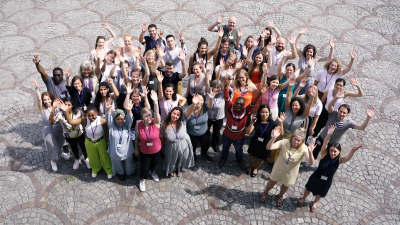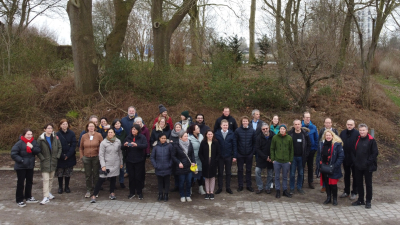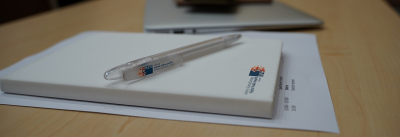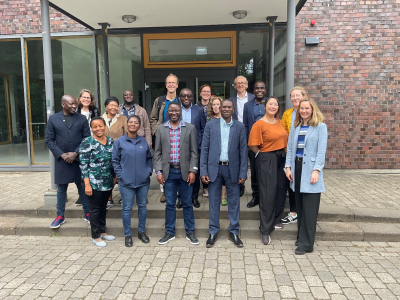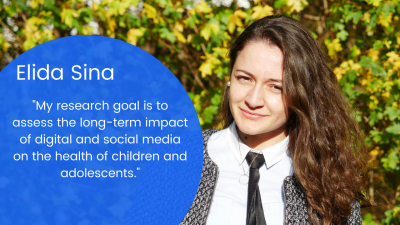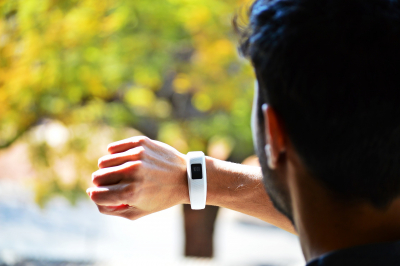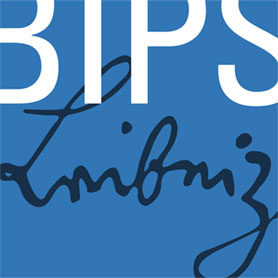News
Digital Public Health Interventions Summer School Highlights
We are thrilled to share some wonderful moments from the recent Digital Public Health Interventions Summer School that took place in Bremen from July 10th to July 14th, 2023. This 5-day event, conducted in English, provided an enriching experience for all participants, exploring the design, evaluation, and implementation of digital public health interventions.
AI in Health Conference
On 21 September 2023, the U Bremen Research Alliance together with JUST ADD AI, the Transfer Centre for Artificial Intelligence BREMEN.AI and the Integrated Health Campus Bremen invite you to the AI in Health conference with a diverse programme of presentations, discussions and networking. The event is free of charge and places are limited.
Retreat in Wilhelmshaven
The LSC DiPH Retreat 2023 took place from the 22nd to the 24th of February at the Atlantic Hotel Wilhelmshaven. The retreat featured a variety of stimulating talks and workshops.
LSC DiPH workshops at EPH Conference 2022
The LSC DiPH organizes two workshops at the 15th European Public Health Conference (EPH) 2022 in Berlin:
Better DiPH – To plan, implement, evaluate, and the future of digital public health interventions (Round table)
How can we achieve effective interdisciplinarity in digital public health practice? (Skills building seminar)
Public lecture: "Digital Public Health – Promises and potential pitfalls"
The LSC is giving a public lecture on "Digital Public Health – Promises and potential pitfalls" hosted by the Department of Public Health, Oshakati Campus at the University Namibia.
LSC-DiPH develops framework that helps to develop and assess digital public health interventions
Public Health aims to promote and enhance the health status of individuals and communities through collective societal efforts. Recently, several digital technologies have emerged, pursuing the same goal, developing a novel concept: Digital Public Health. Given the rapidly increasing number of health-related digital technologies, a systematic framework is necessary to assess their values from a public health perspective.
Exchange on digital corona strategies in Africa and Germany on 08.07.22
During the visit of the three Tanzanian researchers Prof. Dr. Alex B. Makulilo, Dr. Doreen Mwamlangala and Dr. Rindstone Ezekiel from the Open University of Tanzania, the LeibnizScience Campus DiPH analyzed and discussed digital covid-19 strategies in Germany and Africa with a special focus on tracing apps. Background of the visit is a research project on health law funded by the Humboldt Foundation. The exchange was enriched by a delegation of researchers from the University of Namibia.
Recent publications
The influence of social media on children's and adolescents' diets, understanding engagement strategies in digital interventions for mental health promotion, mapping digital public health interventions in practice, the role of technology to promote social participation during the COVID-19 pandemic and implementation of evidence-based digital health interventions to support public health. These are selected recent publications from the LSC DiPH.
Join us! We offer the position of a post-doc for the Research Cluster Evaluation
The Leibniz ScienceCampus Digital Public Health Bremen is a highly interdisciplinary research collaboration between the Leibniz-Institute for Prevention Research and Epidemiology –BIPS and the University of Bremen, funded for an initial period of 4 years (2019-2023). To join us in this endeavour, we invite the application for a full-time scientist (Post-doc, salary grade TVL-13) for the duration of two years (with opportunity for extension) who will support and drive research in one of our key research clusters, namely cluster 3. The post can also be filled as a less than full-time position, depending on negotiations.
LSC DiPH Colloquium Series:The Patient-Manager - Empowerment or Technological Paternalism?
Kenncode: 9HhH6!
More...
Aspects and Challenges of Digital Public Health
1st Scientific Symposium –
Aspects and Challenges of Digital Public Health
January 10, 2020
Haus der Wissenschaft, Sandstraße 4/5, 28195 Bremen
 English (United Kingdom)
English (United Kingdom)  Deutsch (Deutschland)
Deutsch (Deutschland) 
